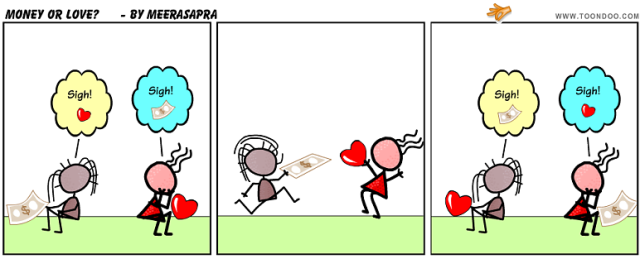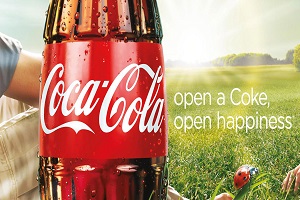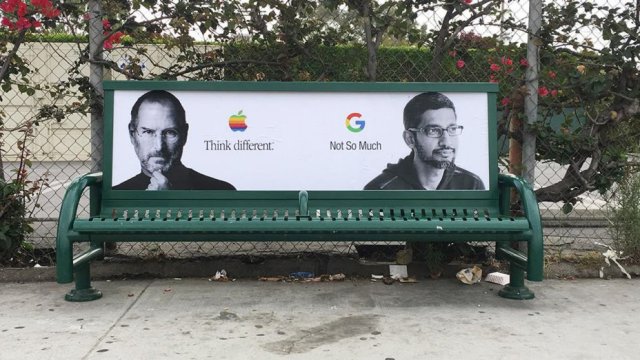
Last week I established that there is a divide about to what extent we should value money, and also discussed how when we make purchases, we are buying more than a product. This week I am going to discuss the relationship of spending for acceptance and to be a part of group.
Have you ever been manipulated? Or even worse have you been manipulated by someone you deeply trusted. Someone that you believe to have your best intentions at heart, but was in reality using you. I’m sure most of you can relate. However, what if you were being manipulated and weren’t aware? Or even if you were slightly aware you didn’t realize to what extent. Welcoming to the world of advertising.
Consider this advertisement:
When was the last time you opened a bottle of happiness? Also pay careful attention to how you have the sun rays beaming down on the coca-cola bottle. The majestic green field that you could frolic through joyfully as you sip pure sunshine through the bottle. Sign me up.
However, no company would write: “open a Coke, open happiness” with this image.

Now why? They are the same thing! But you, as do I, feel differently about both. One makes you think I need a coke right now that sounds amazing, while the other makes me think I’ll never buy another. So you’re not really buying coke. You’re buying something else. Let’s keep building on this idea.
Consider another advertisement. Similar, but slightly different.

What is the intended response here. As C.S. Lewis would put it, the advertiser is trying to make you a part of something (Lewis). Your choice to donate makes you part of an elite group that sacrifice their finances to be a part of something greater. You are not buying a product you are buying belonging.
From the Journal of Marriage and Family, Edith Neisser writes,
“On a deeper level the possession or the spending of money may take the place of love.30 This is particularly likely to happen to young adults on their own for the first time. Some may be come extremely frugal, because funds in the bank represent emotional even more than financial security. Others spend more than they should, lavishing unnecessary luxuries on themselves, as if they were giving themselves the affection others seem to be denying them”
The first sentence of Neisser’s quote strikes the issue when she writes, “spending to take the place of love”. Can you buy it? Can you really ever spend enough to get there? Why is it that we are on the 10th generation of iPhones we are all still buying another?
I argue the fundamental manipulation that occurs is we believe advertisers have our best interest at heart. We believe that they are genuinely looking out for our best interest, and want to help us. While this may be true of some I believe we must face a reality that we know to be true, one that I even have a hard time writing. It’s a business. They want you to buy their thing, and they want to convince you that their thing is better than anyone. You can’t buy the love and the happiness that coca-cola wants you to think you can. But you are able to keep buying their stuff.
Let’s consider a final ad:
 The companies are all competing. Who are they competing for? You. They are working in anyway to convince you to buy your thing, by whatever means necessary. However they have to appeal to you, they will do. From the Federal Trade Commision they write about the techniques of advertising. Let me list some concerning ones:
The companies are all competing. Who are they competing for? You. They are working in anyway to convince you to buy your thing, by whatever means necessary. However they have to appeal to you, they will do. From the Federal Trade Commision they write about the techniques of advertising. Let me list some concerning ones:
- Must-have→ Suggesting that you must have the product to be happy, popular, or satisfied.
- Fear→ Using a product to solve something you worry about, like bad breath.
We are all human, we have a fundamental need for belonging. Concerning the value of family Kathryn Parry from Health Guidance writes,
“During hard times, everyone in the family including you benefit due to the extended relationship, especially during events such as death, accident and so on. Also, the joy associated with success or any other happy moment magnifies when our family is around.”
Stop spending money to fill a void of belonging, that money was never meant to fill.
Works Cited:
Neisser, Edith G. “Emotional and Social Values Attached to Money.” Marriage and Family Living, vol. 22, no. 2, 1960, pp. 132–138., doi:10.2307/347329.
*The thoughts and inspiration for this blog post came from class discussion and also from C.S. Lewis’ book Mere Christianity in a small section of how buying habits are influenced.

Great post. It made me think about how I have been manipulated into spending money. I think with the creation of social media advertisements have completely evolved and become even more deceiving to recognize. For example, I like fashion and because of this I follow a lot of style bloggers on Instagram and Twitter. It is really no secret to me that these young women have clothing brand sponsors that pay them to post pictures of themselves wearing their clothes while out and about having the best times of their lives. Although I can recognize this as a consumer it doesn’t stop me from looking up the brands listed online and seeking out the products. Social medias new type of advertisement is much more discreet then your examples of Coca Cola and Apple however they’re just as effective.
LikeLike